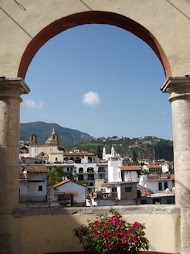
Wherever I travel abroad and no matter the political situation in the United States, talk about life in my country invariably circle around to America’s labyrinthine system of health care. Generally, I welcome the chance to explain life in those United States to any willing listener/reader. I hope, probably naively, that conversations about real experiences help everyone to humanize and understand a world full of social caricatures. Most of the perceived deficiencies of the United States (or any country, really) are actually peculiarities, like two-party politics or SUV's. Usually, I feel I can give some apology and for my nation's various quirks that makes America less cartoonish. However, in discussions about the American health care system I have yet to find myself an apology, and every year our medical arrangements become even more “
perverse and baffling,” whether measured by individual stories or
systemic statistics. Simply put, a major illness can carry catastrophic and
ruinous costs, and medical insurance provides only a
modicum of security.
Americans understand very little about how they pay the doctors, hospitals, and pharmacies that provide their medical care. This has contributed greatly to inaction against the system’s incentives and inefficiencies. It also explains why health care reform becomes a political rallying cry about once a decade. For those abroad who want to know what Americans live through when they get sick and for those Americans who wonder why it has come to this and how to fix it, I have a sampling of the really informative and provocative journalism (
bold links) that has been generated by the current clamor for medical coverage.
Presently, dissaffection has
reached a level where Americans are actually willing to pay increased taxes for adequate health care coverage, but we are still fearful of what change could mean. As always, the
Economist do
summaries of the existing situation really well. For a detailed look at the difficulties in containing health care costs, read
Atul Gawande's "
The Cost Conundrum," a
New Yorker piece
cited by the Obama administration. Dr. Gawande also wrote an insightful, and more encouraging,
look in 2008 about how various European nations built their health care systems. For a more global perspective in providing patient care, listen to NPR's All Things Considered's examinations of
Taiwan and
Japan for
Frontline.
Gawande's assumption that Americans will probably want to keep insurance as the mechanism for paying medical bills has proved accurate given the current discussion of a so-called "public option" for medical insurance.
Robert Reich and
Paul Krugman both write repeatedly about the economics of how a public option might control costs. Of course, a badly designed public option has
serious risks.
Of course, all of this political chit-chat rides the
daily shifts of opinions and optimism, but much of America appears to be debating and thinking about what they want in the health care. I only hope that
what we want will be good for us, too. Anyone else read a good story or study about American health care? Click on "comments" below and clue us in.
Update (29 June 2009): Columnist David Brooks delivered an incredibly astute
assessment of the legislative machinations toward health care reform a couple weeks ago. It's one of the cleverest passages of non-partisan political commentary I have read in some time.

.jpg)













.jpg)